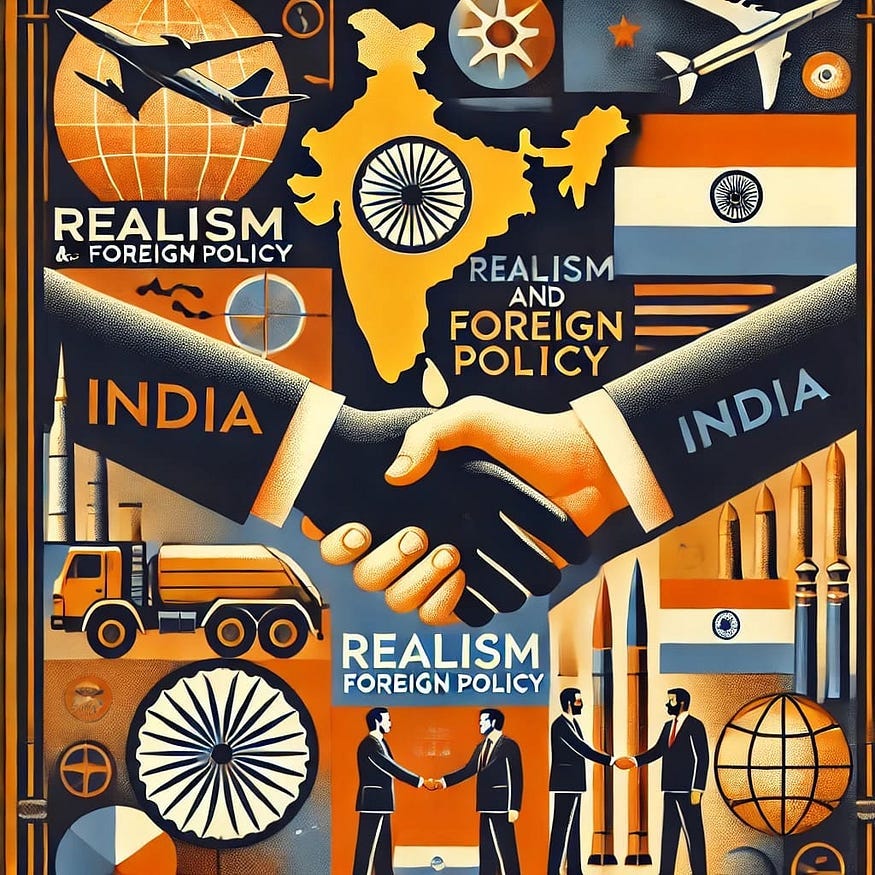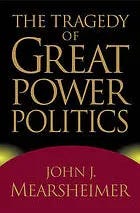Foreign policy can be described as a state’s policies towards other states, entities, and organizations that hold territory, power, or influence. Many schools of thought have attempted to theorize and establish policies to ensure that the interests of their nation-state remain paramount and are achieved. These schools of thought can be divided into four major categories:
Isolationism
Constructivism
Idealism
Realism
Today, I would like to engage in a systematic exposition of Realism by explaining its theory and many schools of thought in a discrete manner. I would expand most upon Offensive Realism.
Even Realism has many schools of thoughts, mainly they are called:
Classical Realism
Neorealism
Offensive Realism
Defensive Realism
Classical Realism was theorized and brought to the mainstream by E. H. Carr, George F. Kennan, Hans Morgenthau, Raymond Aron, and Robert Gilpin in the modern age. They would argue that they have just adopted it and changed it for the post-war world while giving credit to Thucydides, Niccolo Machiavelli, and Thomas Hobbes. I would now like to give my opinion on what Realism is and what its practice leads to as argued by the three individuals above, Thucydides believed that morality and moralistic arguments have no place in international politics, as the goal of states there is to maximize their influence, self-interest, and power while ensuring that their goals are sufficiently met and fulfilled. Machiavelli argued for a separation of morality and politics and advocated for their complete separation, while also arguing for States to employ any means necessary to further their goals and interests. Hobbes believed that the world was an anarchic state as there was no state (“Leviathan”) with complete authority over it. Chanakya may have been the first realist philosopher in the world, but here we are specifically discussing the Western tradition and so he shall not be discussed.
John Mearsheimer was the first proponent of Offensive Realism, and his theory is based upon five postulates(assumptions) which are as follows:
Anarchy: the international system is anarchic;
Offensive military capabilities: all great powers possess offensive military capabilities which they can use against each other;
Uncertainty: states cannot be sure that other states will not use military capabilities against them;
Survival: the primary goal of states is survival;
Rationality: States are rational unitary actors who think strategically about how to pursue their primary goal (survival).
According to offensive realism, States have to actively pursue their interests to ensure their completion and preemptively seek their fruition, unlike defensive realism. I would now like to expand upon my understanding of this by using three real-world examples: The Israel-Palestine conflict, the Russian-Ukraine war, and Canada-India diplomatic row.
The history of the Israel-Palestine conflict is of no consequence to the realist as he seeks to maximize his State’s interest, and in this conflict, they lie with the eventual victory of Israel. While there remains a strong moral argument in favor of Palestine, it is of no consequence to the realist. While the atrocities committed are heart-wrenching and are a violation of the Palestinian’s human rights, all it deserves is condemnation. If in any case, the pursuit of human rights may lead to the State not being able to fulfill its interest, the State’s interest should be fulfilled even at the cost of the former. The argument remains the same with Lebanon as they are intruding in the Israeli sphere of interest and are hostile actors in that sphere where they need to be dealt with. Neither the Indian State nor its populace need to give the Israeli cause overt support but do so covertly. It is also necessary that our populace in any way, shape, or form not justify the human rights violation. We need to maintain strategic silence on that issue.
The above statement holds for the Israeli conflicts with Palestine and Lebanon, but not for the Israeli-Iranian conflict. Iran is as important an ally to us as Israel. It can be argued that Iran is even more important to the Indian State than Israel. While Israel can provide us with technology and help further our interests, Iran is a long-standing ally. Betraying Iran may damage our trustworthy image in the eyes of our other allies. Any attack on Iranian territory or violation of its airspace is an attack on the Iranian sphere of influence and that needs to be discouraged by the Indian State through diplomacy with our Israeli allies. A strong Shia State in the MENA region is in our best interest. We need to discourage any kinetic-conflict between these two states.
The position taken by the Indian State in the Russian-Ukraine conflict is the most opportune one. It will be beneficial for us if the Ukrainians lose because it shall mean that the Russian sphere of influence will remain intact and that is of the utmost benefit to the Indian people.
The actions taken by the Indian State in Canada are completely legitimate and warranted, but their execution has been terrible. By taking the actions we took, we entered and violated the American sphere of influence and interest, for which we shall be punished. Such actions should always be conducted completely through proxies because the direct violation of their sphere of influence will never be tolerated by the Strong States.
On the question of morality and the moral argument made by the liberals, I would like to end their argument with this quote from John Mearsheimer:
“Great powers of all persuasions care deeply about their survival, and there is always the danger in a bipolar or multipolar system that they will be attacked by another great power. In these circumstances, liberal great powers regularly dress up their hard-nosed behavior with liberal rhetoric. They talk like liberals and act like realists. Should they adopt liberal policies that are at odds with realist logic, they invariably come to regret it.”
From a realist lens, the nation-state that can compete with India as rising powers are Vietnam, Türkiye and Indonesia.
We can reach a rapprochement with Vietnam and they can be more productive allies for us. Both Türkiye and Indonesia need to be treated as enemy states in the coming times due to Neo-Ottoman Islamism and Indonesia’s Classical Islamism. Türkiye will be easy to deal with as they have their own K problem, Indonesia on the other hand needs to be crippled economically and the Ocean shall take care of the rest.
Footnotes:



